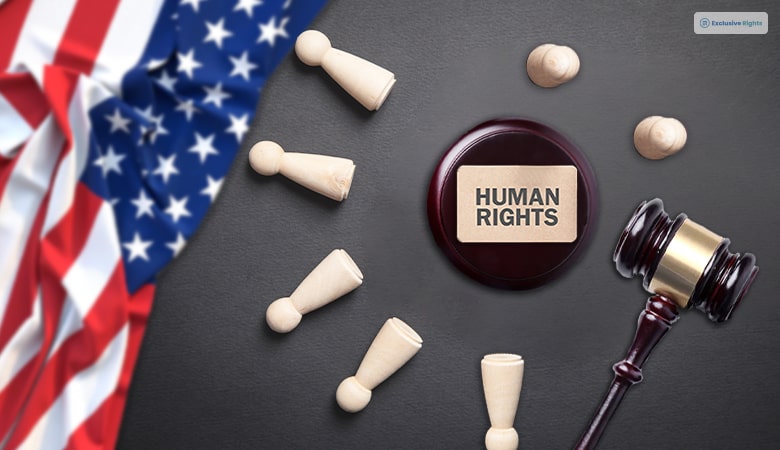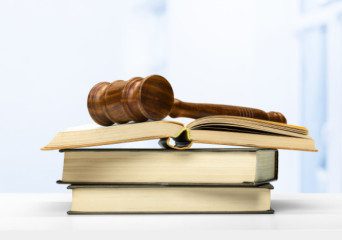
Table Of Contents
- What Are Human Rights?
- Human Rights Through Time: History Of Human Rights
- The Cyrus Cylinder, 539 BC
- The Magna Carta, 1215
- The Petition Of Rights, 1628
- The United States Declaration Of Independence, 1776
- The Constitution Of The United States Of America, 1787
- The Declaration Of The Rights Of Man And Of The Citizen In France, 1789
- The Bill Of Rights, 1791
- First Geneva Convention, 1864
- Universal Declaration Of Human Rights, 1945
- The Civil Rights Movement, 1954
- The International Bill Of Rights, 1966
- The World Conference On Human Rights, 1993
- Fundamental Rights Of The European Union Charter, 2000
- The UN Declaration On Human Rights Education And Training, 2011
History Of Human Rights- A Concise Study
Human rights are moral principles that are inherent in the workings of society. These are basic rights that every human being enjoys. It might surprise you to know how many of your daily activities are a manifestation of the establishment of Human Rights.
So what is the history of human rights? Had this been the 1800s, I, a woman of 24, would have to rely on the male adults of the nation to elect a representative to the government. The Black Lives Matter movement would have been considered to be an act of sedition.
Before the Second World War, when the United Nations was yet to exist, the concept of Human Rights was non-existent. They were more of a moral obligation as opposed to a legal one, as it is now.
What Are Human Rights?

To get a detailed understanding of the history of Human Rights, we must know what human rights are. A concise list of Human Rights according to the Universal Declaration of Human Rights includes the following:
- Right to Freedom and Equality
- Right against discrimination on the grounds of race, religion, sex, and culture.
- Right to life.
- Right against slavery.
- Right to equal treatment and equal protection of the law.
- Right to a fair trial.
- Right to privacy.
- Right to asylum.
- Right to nationality.
- Freedom of thought and religion.
- Freedom of expression.
- Right to work.
- Right to rest.
- Right to assemble.
- Right to education.
- Right to participate in cultural activities.
- Right to vote.
- Right to ownership of property.
- Right to marriage and family.
- Human rights cannot be declared void or inapplicable by any political entity.
These enumerated rights are universally applicable. These are to be protected by the law of every member nation.
Human Rights Through Time: History Of Human Rights
Let me take you through a journey of human rights throughout time- A history of human rights. The stark difference with the current state might make you grateful that you exist in the 21st Century!
The Cyrus Cylinder, 539 BC

In the early days of human civilization, one only had rights when he belonged to a particular sect or group, but when King Cyrus conquered Babylon, he introduced something that was
unknown to man previously, human rights.
He abolished slavery and declared that people were privy to religious and racial freedom and equality. The Cyrus Cylinder records the first-ever Human Rights known to man and sets an example for the generations to come.
The Magna Carta, 1215

The Magna Carta holds a key place in the history of human rights. It was then established in 1215 England as a means of keeping King John’s
arbitrary powers in check while protecting the human rights of English citizens.
Further, in 1628 the Petition of Rights was passed in the English Parliament to fight against King Charles’ policies of immoral taxes, arrest without cause (based on the principle of habeas corpus), and arbitrary martial laws.
“The Great Charter” was one of the first recorded pieces of legislation that introduced the Right to justice through a fair trial.
The Petition Of Rights, 1628

Yes, you read that right. It took four centuries to come up with a piece of legislation that guarded the fundamental rights of the commoners. The petition brought about a few changes that aided the mass.
Few of them are-
- No taxes could be levied without the consent of the parliament.
- Quartering of soldiers when the nation is not at war was not allowed. The 3rd amendment to the US Constitution guarantees the same rights.
- Imprisonment without proper reason and martial law in peacetime were declared against the law.
The next proponent of human rights came to exist yet another century later.
The United States Declaration Of Independence, 1776

The United States Declaration of Independence in 1776 is based on the equality of all human beings. It is considered to be a precursor to the US Constitution. It was quite the upgrade from the Petition of Rights, even though it did not have a legally binding effect. And it stood for the right to life, liberty, and the right to pursue happiness.
The Constitution Of The United States Of America, 1787

The Constitution of the United States of America came to force in 1787. It called for a separation of powers of all the wings of the government and introduced a system of checks and balances. Today, the American Constitution stands as the greatest protector of its citizen’s rights.
The Declaration Of The Rights Of Man And Of The Citizen In France, 1789

The Declaration of the Rights of Man and of the Citizen in France, 1789, abolished the
monarchy and promised to protect property, liberty, security, and resistance to oppression.
The Bill Of Rights, 1791

The Bill of Rights is the first 10 amendments of the US Constitution. It establishes limitational boundaries on the federal powers of the government. It protects human rights such as freedom of speech and expression, religion, and also the rights of immigrants.
These policies went on to point out the significance of the constitution as machinery for protecting the natural human rights of its citizens. The Bill of Rights elucidated freedoms of speech, religion, assembly, and petition. It took away the state’s power to search and seize without reason and forced self-incrimination.
First Geneva Convention, 1864

In the First Geneva Convention, 1864, medical care and no discrimination against wounded and sick military personnel were promised.
The Second Geneva Convention called for the protection of the sick and wounded military personnel who were shipwrecked during the war.
Universal Declaration Of Human Rights, 1945

The history of human rights would be incomplete without this addition.
After the establishment of the United Nations in 1945, the Universal Declaration of Human Rights was passed in 1948, which vowed to protect all inherent rights of human beings in an equal manner. The UDHR consists of a set of 30 Articles and is considered to be the prime milestone in the documentation of all legislations on Human Rights.
The Civil Rights Movement, 1954

The Civil Rights Movement aimed to fight for the natural rights of the African American population. It strived to protest against the discriminatory practices of apartheid and racial bias that was rampant in the US. Civil Rights Activist Martin Luther King Jr. was one of the prominent figures of the movement and went on to win a Nobel Prize for his contributions.
The movement led to the passing of the Civil Rights Acts of 1957 and 1964. The movement still continues in the 21st century in the form of various protests such as the Black Lives Matter movement, Latin American protests, the Asian Lives Matter movement, and a few distinct ones.
The International Bill Of Rights, 1966

The bill addresses economic, social, and cultural rights and protects them while creating and implementing national laws and policies.
In the American Convention on Human Rights is an important aspect of the history of human rights. It was adopted in 1969, prioritizing the same sets of rights. The Convention against Torture, 1984
The Convention against Torture and other Cruel, Inhuman or Degrading Treatment or Punishment, 1984, is a treaty guaranteeing human rights. It establishes conditions against inhuman conditions and crimes which can often result from wars.
The World Conference On Human Rights, 1993

This was the first-ever human rights conference held after the cold war and led to the Vienna Declaration and Programme of Action. This conference is also known for the protection of human rights of women, children, ad indigenous people.
Fundamental Rights Of The European Union Charter, 2000

This charter enlists a set of economic, political, and social rights of the citizens of the EU. This charter was drafted by the European Union itself and is protected by the CJEU(Court Of Justice Of European Union)
The UN Declaration On Human Rights Education And Training, 2011

This is the most recent addition to the list and aims to promote awareness about human rights all around its 193 member nations. The purpose of this training is to establish that all human beings have the right to know about the rights they are entitled to and enjoy as a global citizen.
Read Also:









